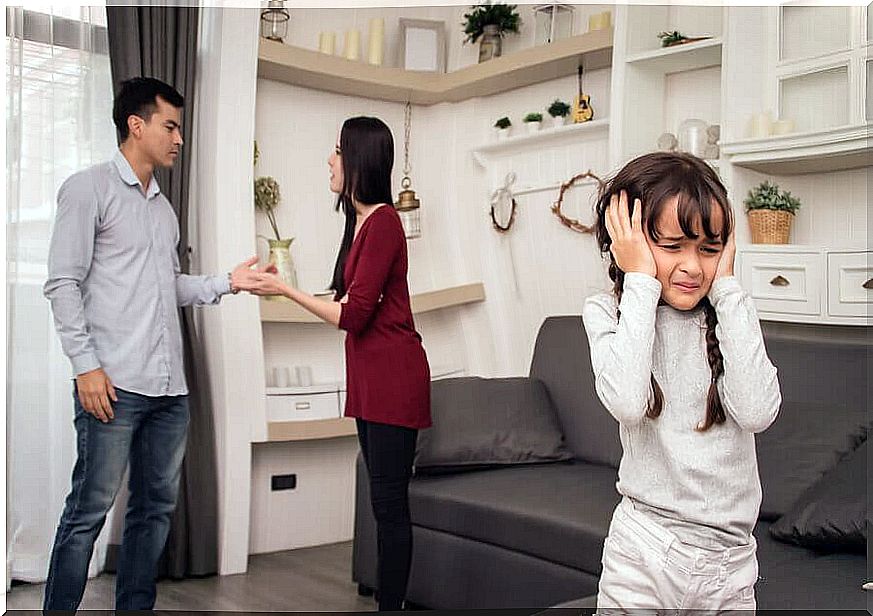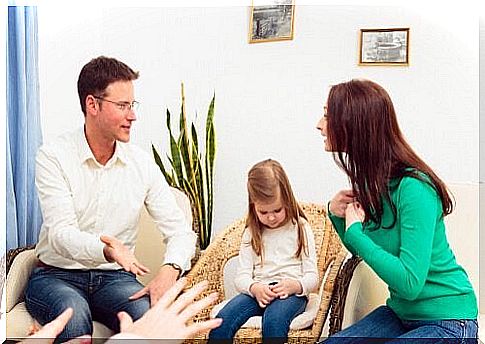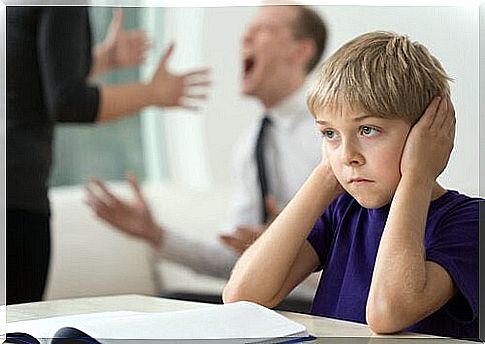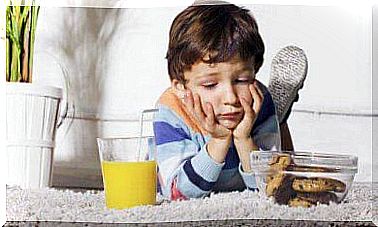Parents Should Not Quarrel In Front Of Children

It is normal for parents to disagree and quarrel from time to time. Sometimes a couple may not have the same opinion but can still talk in a calm way. But when this is not the case, remember: Parents should not quarrel in front of their children.
Ideally, you have a discussion where both people have the opportunity to talk and listen to different points of view. However, there are many cases where parents do not agree and everything ends in a quarrel.
Children often worry when their parents quarrel and it makes them feel scared, sad or upset. Even when the discussion ends, they can hide a sense of guilt.
Similarly, conflicts between parents can affect the child’s mental health and the development of their social and emotional skills, in addition, academic performance and their ability to form future relationships are affected.
In fact, a study has found that unresolved conflicts between parents have a strong impact on children’s early development, mental health and the possibilities for their future lives.
Why should parents not quarrel in front of their children
It is not a good idea to quarrel in front of your children for the following reasons:
1.Children are emotionally insecure
Quarrels evoke a sense of insecurity in children about the stability of the family. Children who are exposed to many quarrels can worry about divorce.
In addition, it can make it difficult for them to get a sense of normalcy in relation to the family because the quarrels can happen for unpredictable reasons and at any time.

2. The relationship between parents and children can be affected
Conflicts are stressful for children and no doubt also for parents. A parent suffering from stress cannot spend quality time with his children. Meanwhile, it can also be difficult for them to show warmth and love when they are angry and upset.
Quarrels create a stressful environment
Listening to frequent or intense discussions is not comfortable for children and results in stress. These situations can affect their physical and mental well-being as well as disrupt the child’s normal and healthy development.
A study also showed that stress associated with living in a home with a lot of conflict can affect a child’s cognitive performance.
Researchers reveal that when parents often quarrel, children have greater difficulty regulating their attention and emotions. Moreover, their ability to solve problems effectively is also compromised.
Parents should not quarrel in front of their children
Children often worry about the significance of their parents’ quarrels and the consequences. This leads them to draw hasty conclusions and believe that the quarrels mean that their parents no longer love each other.
But when parents quarrel, it does not mean that they do not love each other or want a divorce. Conflicts are usually just a way to vent when they’ve had a bad day or do not share the same opinion.
In fact, children of all ages can be affected by a conflict between parents. In general, the consequences are seen through a high level of aggression, hostility and violence. Internally, they may show low levels of self-esteem, in addition to episodes of anxiety and depression.

How do the children feel when their parents quarrel?
In general, children get upset when they see or hear their parents arguing. It is difficult for them to listen to shouts and unpleasant words. Similarly, seeing parents become confused and out of control can make children feel unprotected and scared.
The little ones may worry about one of the parents during the discussion. Their concern is that you feel particularly sad or hurt by the other party.
Sometimes parental quarrels make the children cry or get physically uncomfortable. For example, a stomach ache caused by nerves may occur, or they may even have difficulty sleeping or concentrating at school.
Finally, keep in mind that parental quarrels can sometimes be healthy if they help people express their feelings in order to resolve situations instead of letting them bottle up.
Although we are aware that it is complicated, we must do as much as possible to try not to quarrel in front of our children as it can certainly affect them emotionally.









